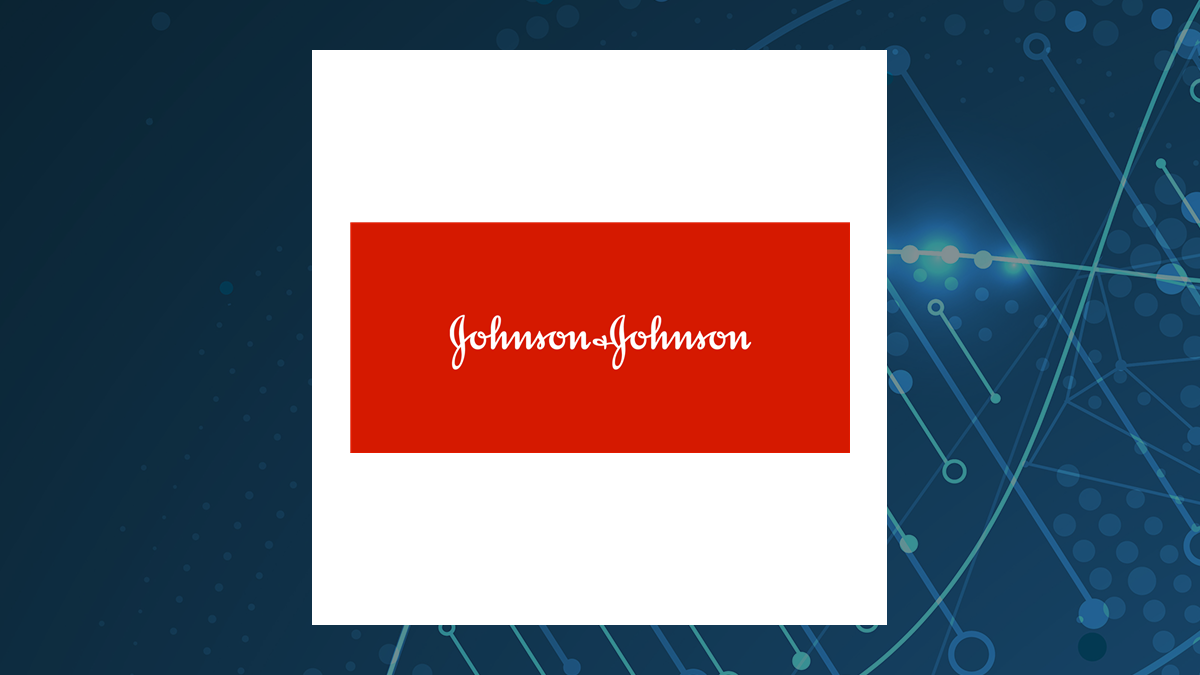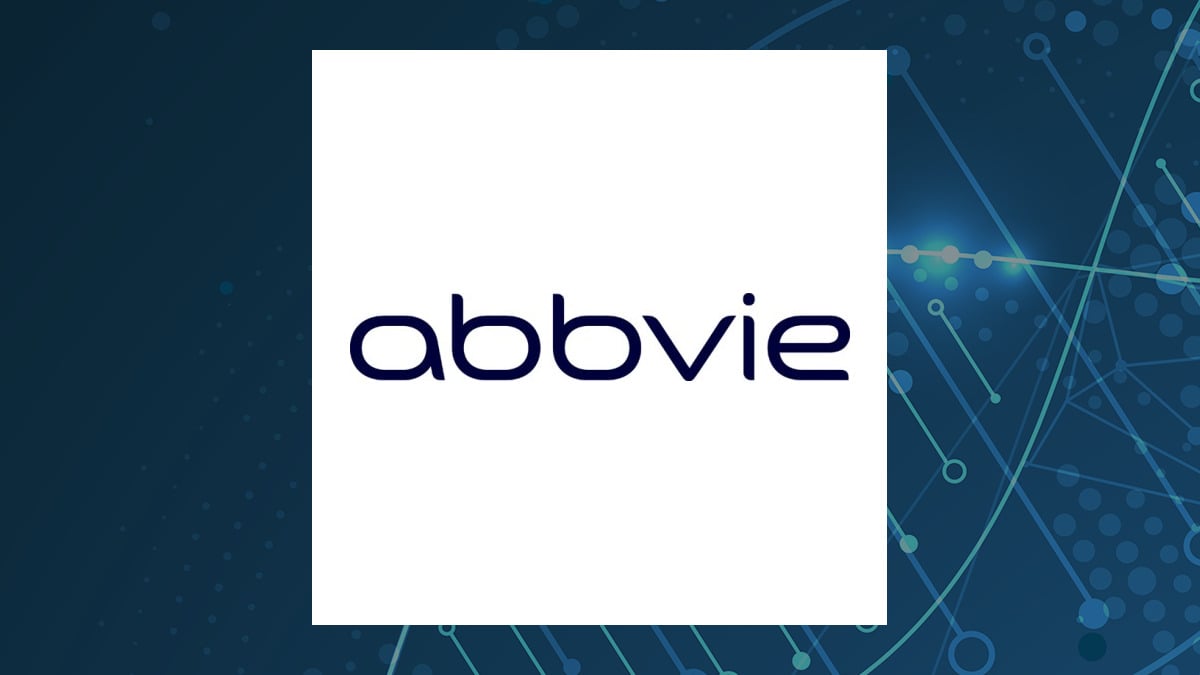Johnson & Johnson (NYSE:JNJ – Get Free Report) and AbbVie (NYSE:ABBV – Get Free Report) are both large-cap medical companies, but which is the better investment? We will contrast the two businesses based on the strength of their dividends, profitability, earnings, institutional ownership, risk, analyst recommendations and valuation.
Profitability
This table compares Johnson & Johnson and AbbVie’s net margins, return on equity and return on assets.
| Net Margins | Return on Equity | Return on Assets | |
| Johnson & Johnson | 24.42% | 33.46% | 13.30% |
| AbbVie | 7.31% | 412.03% | 13.11% |
Earnings & Valuation
This table compares Johnson & Johnson and AbbVie”s revenue, earnings per share and valuation.
| Gross Revenue | Price/Sales Ratio | Net Income | Earnings Per Share | Price/Earnings Ratio | |
| Johnson & Johnson | $88.82 billion | 4.22 | $14.07 billion | $8.99 | 17.34 |
| AbbVie | $56.33 billion | 5.94 | $4.28 billion | $2.35 | 80.64 |
Johnson & Johnson has higher revenue and earnings than AbbVie. Johnson & Johnson is trading at a lower price-to-earnings ratio than AbbVie, indicating that it is currently the more affordable of the two stocks.
Institutional & Insider Ownership
69.6% of Johnson & Johnson shares are held by institutional investors. Comparatively, 70.2% of AbbVie shares are held by institutional investors. 0.2% of Johnson & Johnson shares are held by company insiders. Comparatively, 0.3% of AbbVie shares are held by company insiders. Strong institutional ownership is an indication that hedge funds, large money managers and endowments believe a company will outperform the market over the long term.
Volatility & Risk
Johnson & Johnson has a beta of 0.41, suggesting that its stock price is 59% less volatile than the S&P 500. Comparatively, AbbVie has a beta of 0.48, suggesting that its stock price is 52% less volatile than the S&P 500.
Analyst Recommendations
This is a breakdown of recent recommendations and price targets for Johnson & Johnson and AbbVie, as reported by MarketBeat.
| Sell Ratings | Hold Ratings | Buy Ratings | Strong Buy Ratings | Rating Score | |
| Johnson & Johnson | 0 | 11 | 7 | 2 | 2.55 |
| AbbVie | 0 | 8 | 16 | 3 | 2.81 |
Johnson & Johnson presently has a consensus price target of $170.88, suggesting a potential upside of 9.61%. AbbVie has a consensus price target of $211.29, suggesting a potential upside of 11.50%. Given AbbVie’s stronger consensus rating and higher probable upside, analysts clearly believe AbbVie is more favorable than Johnson & Johnson.
Dividends
Johnson & Johnson pays an annual dividend of $5.20 per share and has a dividend yield of 3.3%. AbbVie pays an annual dividend of $6.56 per share and has a dividend yield of 3.5%. Johnson & Johnson pays out 57.8% of its earnings in the form of a dividend. AbbVie pays out 279.1% of its earnings in the form of a dividend, suggesting it may not have sufficient earnings to cover its dividend payment in the future. Johnson & Johnson has increased its dividend for 64 consecutive years and AbbVie has increased its dividend for 53 consecutive years.
Summary
AbbVie beats Johnson & Johnson on 11 of the 18 factors compared between the two stocks.
About Johnson & Johnson
 Johnson & Johnson is a holding company, which engages in the research, development, manufacture, and sale of products in the healthcare field. It operates through the Innovative Medicine and MedTech segments. The Innovative Medicine segment focuses on immunology, infectious diseases, neuroscience, oncology, cardiovascular and metabolism, and pulmonary hypertension. The MedTech segment includes a portfolio of products used in the interventional solutions, orthopaedics, surgery, and vision categories. The company was founded by Robert Wood Johnson I, James Wood Johnson, and Edward Mead Johnson Sr. in 1887 and is headquartered in New Brunswick, NJ.
Johnson & Johnson is a holding company, which engages in the research, development, manufacture, and sale of products in the healthcare field. It operates through the Innovative Medicine and MedTech segments. The Innovative Medicine segment focuses on immunology, infectious diseases, neuroscience, oncology, cardiovascular and metabolism, and pulmonary hypertension. The MedTech segment includes a portfolio of products used in the interventional solutions, orthopaedics, surgery, and vision categories. The company was founded by Robert Wood Johnson I, James Wood Johnson, and Edward Mead Johnson Sr. in 1887 and is headquartered in New Brunswick, NJ.
About AbbVie
 AbbVie Inc. discovers, develops, manufactures, and sells pharmaceuticals worldwide. The company offers Humira, an injection for autoimmune and intestinal Behçet's diseases, and pyoderma gangrenosum; Skyrizi to treat moderate to severe plaque psoriasis, psoriatic disease, and Crohn's disease; Rinvoq to treat rheumatoid and psoriatic arthritis, ankylosing spondylitis, atopic dermatitis, axial spondyloarthropathy, ulcerative colitis, and Crohn's disease; Imbruvica for the treatment of adult patients with blood cancers; Epkinly to treat lymphoma; Elahere to treat cancer; and Venclexta/Venclyxto to treat blood cancers. It also provides facial injectables, plastics and regenerative medicine, body contouring, and skincare products; botox therapeutic; Vraylar for depressive disorder; Duopa and Duodopa to treat advanced Parkinson's disease; Ubrelvy for the acute treatment of migraine in adults; and Qulipta for episodic and chronic migraine. In addition, the company offers Ozurdex for eye diseases; Lumigan/Ganfort and Alphagan/Combigan for the reduction of elevated intraocular pressure in patients with open angle glaucoma or ocular hypertension; Restasis to increase tear production; and other eye care products. Further, it provides Mavyret/Maviret to treat chronic hepatitis C virus genotype 1-6 infection; Creon, a pancreatic enzyme therapy; Lupron to treat advanced prostate cancer, endometriosis and central precocious puberty, and patients with anemia caused by uterine fibroids; Linzess/Constella to treat irritable bowel syndrome with constipation and chronic idiopathic constipation; and Synthroid for hypothyroidism. It has collaborations with Calico Life Sciences LLC; REGENXBIO Inc.; Janssen Biotech, Inc.; and Genentech, Inc., as well as collaboration with Tentarix Biotherapeutics, LP to develop conditionally-active and multi-specific biologics for oncology and immunology. The company was incorporated in 2012 and is headquartered in North Chicago, Illinois.
AbbVie Inc. discovers, develops, manufactures, and sells pharmaceuticals worldwide. The company offers Humira, an injection for autoimmune and intestinal Behçet's diseases, and pyoderma gangrenosum; Skyrizi to treat moderate to severe plaque psoriasis, psoriatic disease, and Crohn's disease; Rinvoq to treat rheumatoid and psoriatic arthritis, ankylosing spondylitis, atopic dermatitis, axial spondyloarthropathy, ulcerative colitis, and Crohn's disease; Imbruvica for the treatment of adult patients with blood cancers; Epkinly to treat lymphoma; Elahere to treat cancer; and Venclexta/Venclyxto to treat blood cancers. It also provides facial injectables, plastics and regenerative medicine, body contouring, and skincare products; botox therapeutic; Vraylar for depressive disorder; Duopa and Duodopa to treat advanced Parkinson's disease; Ubrelvy for the acute treatment of migraine in adults; and Qulipta for episodic and chronic migraine. In addition, the company offers Ozurdex for eye diseases; Lumigan/Ganfort and Alphagan/Combigan for the reduction of elevated intraocular pressure in patients with open angle glaucoma or ocular hypertension; Restasis to increase tear production; and other eye care products. Further, it provides Mavyret/Maviret to treat chronic hepatitis C virus genotype 1-6 infection; Creon, a pancreatic enzyme therapy; Lupron to treat advanced prostate cancer, endometriosis and central precocious puberty, and patients with anemia caused by uterine fibroids; Linzess/Constella to treat irritable bowel syndrome with constipation and chronic idiopathic constipation; and Synthroid for hypothyroidism. It has collaborations with Calico Life Sciences LLC; REGENXBIO Inc.; Janssen Biotech, Inc.; and Genentech, Inc., as well as collaboration with Tentarix Biotherapeutics, LP to develop conditionally-active and multi-specific biologics for oncology and immunology. The company was incorporated in 2012 and is headquartered in North Chicago, Illinois.
Receive News & Ratings for Johnson & Johnson Daily - Enter your email address below to receive a concise daily summary of the latest news and analysts' ratings for Johnson & Johnson and related companies with MarketBeat.com's FREE daily email newsletter.
